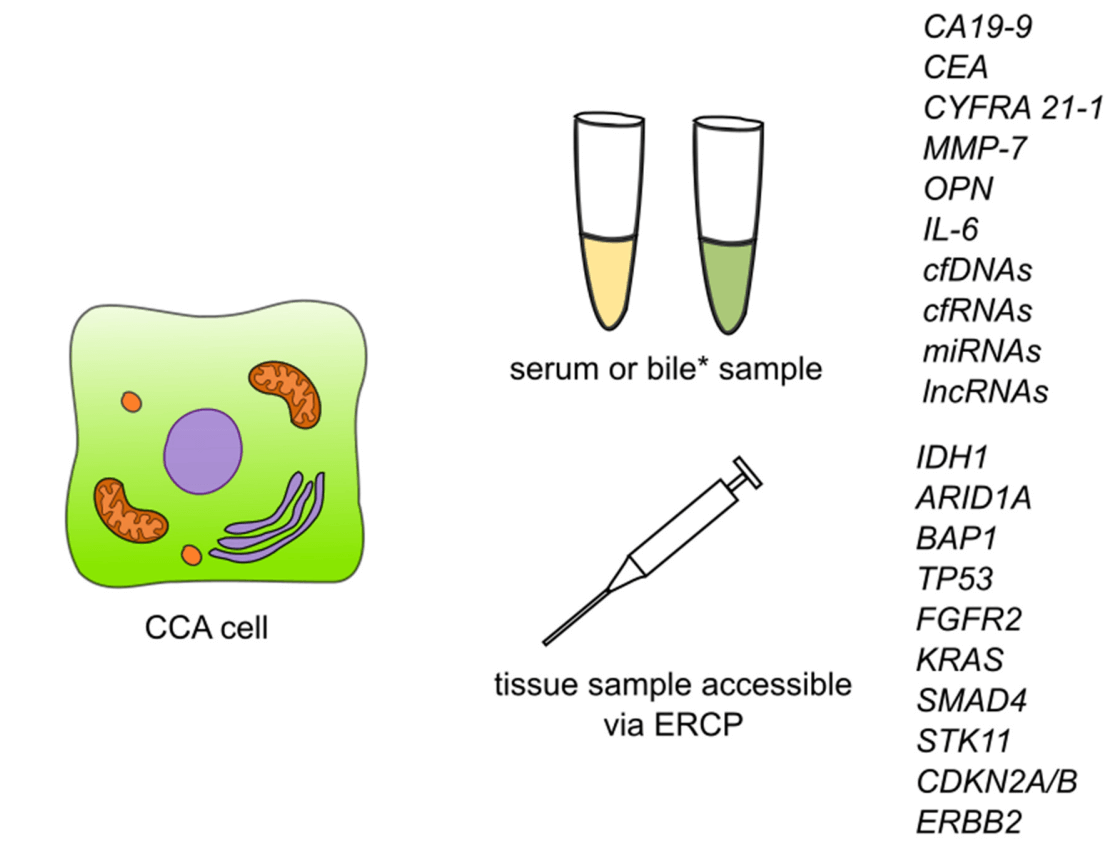The establishment of early diagnostic markers remains an urgent need for establishing the early diagnosis, generating desirable therapeutic and preventative strategies. CCA-CA marker has been demonstrated to be of great potential for cholangiocarcinoma diagnosis. With years of experience in IVD (in vitro diagnostic) antibody development, Creative Biolabs can offer CCA-CA-specific IVD antibody development services to our worldwide clients.
Introduction of CCA-CA
Monoclonal antibody (mAb)-assisted strategy is a kind of successful method to identify cholangiocarcinoma (CCA)-associated glycol-biomarkers. By utilizing tumor homogenate as the source of antigens, two mAbs (KKU-S121 mAb and carbohydrate antigen S27; CA-S27 mAb) which can recognize CCA-associated glyco-biomarkers have been successfully developed. Lea-associated glycan epitope has been identified as a specific antigen of CA-S27 mAb (the so-called CA-S27 antigen), while the epitope recognized by KKU-S121 mAb remains unknown and was recognized as CCA-associated carbohydrate antigen (CCA-CA). In other words, CCA-CA is recognized as an unidentified glycan epitope on MUC5AC observed in CCA tissues and sera. And it is found in human CCA cells but not in normal biliary epithelia.
CCA-CA Marker for Cholangiocarcinoma
Cholangiocarcinoma (CCA), the bile duct epithelial cancer, is known as the second most common primary liver cancer worldwide. Although the treatment strategy of the malignant neoplasms, in general, has notable progress recently, there still remains a poor prognosis for CCA patients, with a very low rate of 5-year survival. The poor prognosis of CCA is mainly due to the delayed diagnosis caused by the lack of applicable tumor markers to accurately detect cancer development at an early stage. Studies have shown that CCA-CA can be detected at the early stage of CCA development and increased gradually with the cancer progression. And it was not found in normal human biliary cells. Therefore, CCA-CA is regarded as a potential marker for the diagnosis and development of CCA.
 Fig.1 Detection of biomarkers and some of the genetic markers for cholangiocarcinoma.1
Fig.1 Detection of biomarkers and some of the genetic markers for cholangiocarcinoma.1
IVD Antibody Development Service for CCA-CA Marker
Since CCA-CA is not only a powerful tumor marker but also a prognostic marker for CCA, IVD antibodies against CCA-CA marker can be developed to help the prognosis and diagnosis of cholangiocarcinoma, and to increase the survival rate of CCA patients. With extensive experience and advanced technologies, Creative Biolabs has been recognized as an expert in the field of IVD antibody development. Our scientific team is able to provide polyclonal, monoclonal, and recombinant antibody development services for diagnostic use. Besides, we help develop high-quality IVD immunoassays of different formats, giving expert support in feasibility analysis, protocol establishment, assay design, validation, and kit production.
Our services are flexible to meet your specific requirements and achieve your project goals. If you are interested in our IVD antibody development services, please contact us to get more information.
Reference
- Baj, Jacek, et al. "Biomarkers and Genetic Markers of Hepatocellular Carcinoma and Cholangiocarcinoma—What Do We Already Know." Cancers 14.6 (2022): 1493. Distributed under Open Access license CC BY 4.0, without modification.
For Research Use Only.